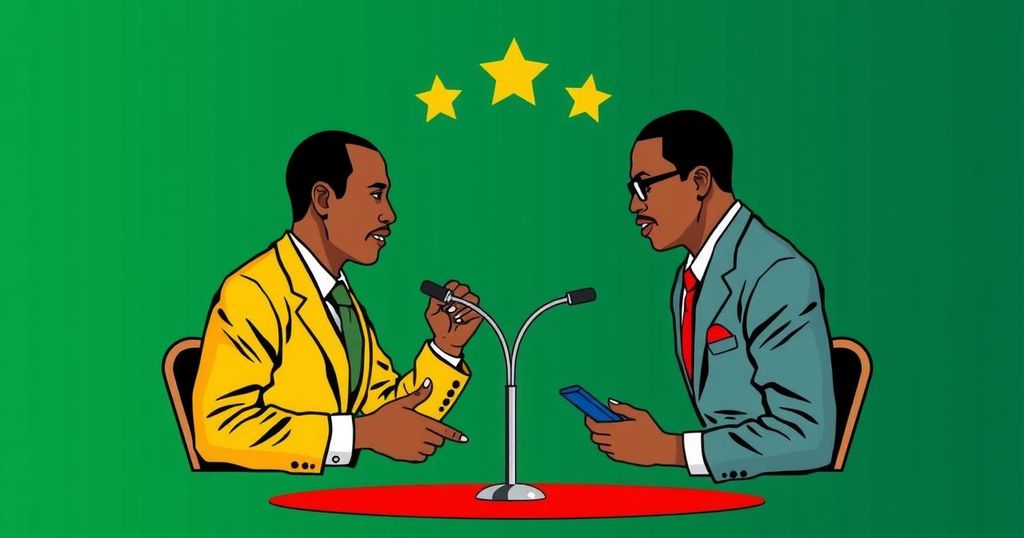Ghana’s Election: Economic Struggles Shape Bawumia and Mahama’s Campaigns

Ghana’s presidential elections are heavily influenced by the nation’s economic crisis, highlighted by soaring inflation and currency devaluation. Candidates Mahamudu Bawumia and John Mahama present differing economic plans: Bawumia’s focus on a “digital economy” versus Mahama’s proposal for a “24-hour economy”. Young voters express disillusionment, with many considering emigration, while both candidates promise to address economic challenges ahead of the elections.
In preparation for Ghana’s upcoming presidential elections, economic conditions are significantly shaping the political landscape. Nathaniel Qainoo, a 29-year-old mechanic in Kasoa, exemplifies the impact of the nation’s economic strife, having been unable to secure work as an accountant since graduation. Ghana has faced severe economic challenges since 2022, including a credit downgrade to “junk status,” soaring inflation at 54%, and a devaluation of the cedi by 70% over eight years. This turbulence has resulted in a lack of confidence among citizens, with many, like Mr. Qainoo, contemplating emigration.
A critical aspect of the 2023 elections is the contrasting economic visions of the two leading candidates: Mahamudu Bawumia from the New Patriotic Party (NPP) and former President John Mahama from the National Democratic Congress (NDC). Bawumia, seeking to leverage his experience as Vice President and his education from Oxford, promotes a “digital economy” and job creation through technological innovation. Conversely, Mahama advocates for a “24-hour economy” aimed at generating night-time employment, while both candidates propose tax cuts to alleviate the cost of living amidst a challenging fiscal environment under an IMF-supported recovery program.
The electoral battle hinges on which candidate can convincingly address Ghana’s pressing economic issues while winning the trust of the electorate. The contrasting strategies of Bawumia’s digital focus and Mahama’s approach to creating a 24-hour economy reflect the urgent desire for change among Ghanaians. As the elections approach, uncertainty remains concerning voter turnout and the potential for a second round of voting due to tight polling margins. The race promises to be a pivotal moment for Ghana’s democratic trajectory.
Original Source: www.bbc.com







